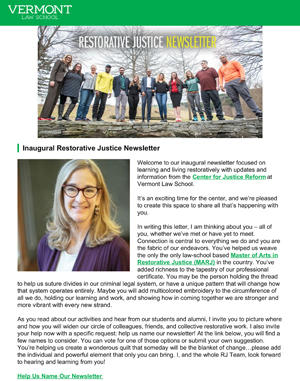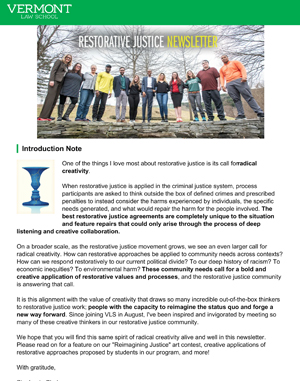FOR IMMEDIATE RELEASE––Vermont Law School will present a talk on the potential for United States Electoral College reform at 12:45 p.m. Tuesday, Nov. 14, in Oakes Hall, Room 012, on the VLS campus. The lecture, by Electoral College scholar Professor Kinvin Wroth, is open to the public and press and will be streamed live at vermontlaw.edu/live.
The U.S. Constitution established the Electoral College in the 18th Century for the indirect election of the U.S. president and vice president. The system has been the subject of criticism, with calls for abolishment or reform, for nearly its entire history—most recently after the 2016 presidential election, which saw a 304 electoral vote majority for Donald Trump though Hillary Clinton won the popular vote by nearly 2.9 million votes.
Wroth plans to discuss the history and intended function of the Electoral College, identify problems related to its operation, and review options for reforming or replacing the system.
A professor of law at Vermont Law School since 1996 and professor emeritus since 2017, Wroth served as the school’s sixth dean from 1996 to 2004. Previously, he served as dean of the University of Maine School of Law from 1978 to 1990 and was on the Maine Law faculty from 1964 until coming to VLS. Wroth’s expertise includes procedure, professional conduct, and legal history. At VLS, he has taught Civil Procedure, Comparative Law, The Canadian Legal System, Race and the Law, and Land Use Law.
Guests are invited to brown-bag their lunch for the Electoral College reform lecture with Kinvin Wroth. For more information, email mapelquist@vermontlaw.edu or call 802.831.1228.
###
Vermont Law School, a private, independent institution, is home to the nation’s largest and deepest environmental law program. VLS offers a Juris Doctor curriculum that emphasizes public service; three Master’s Degrees—Master of Environmental Law and Policy, Master of Energy Regulation and Law, and Master of Food and Agriculture Law and Policy; and four post-JD degrees —LLM in American Legal Studies (for foreign-trained lawyers), LLM in Energy Law, LLM in Environmental Law, and LLM in Food and Agriculture Law. The school features innovative experiential programs and is home to the Environmental Law Center, South Royalton Legal Clinic, Environmental and Natural Resources Law Clinic, Energy Clinic, Food and Agriculture Clinic, and Center for Applied Human Rights. For more information, visit vermontlaw.edu, find us on Facebook, and follow us on Twitter and Instagram.


















